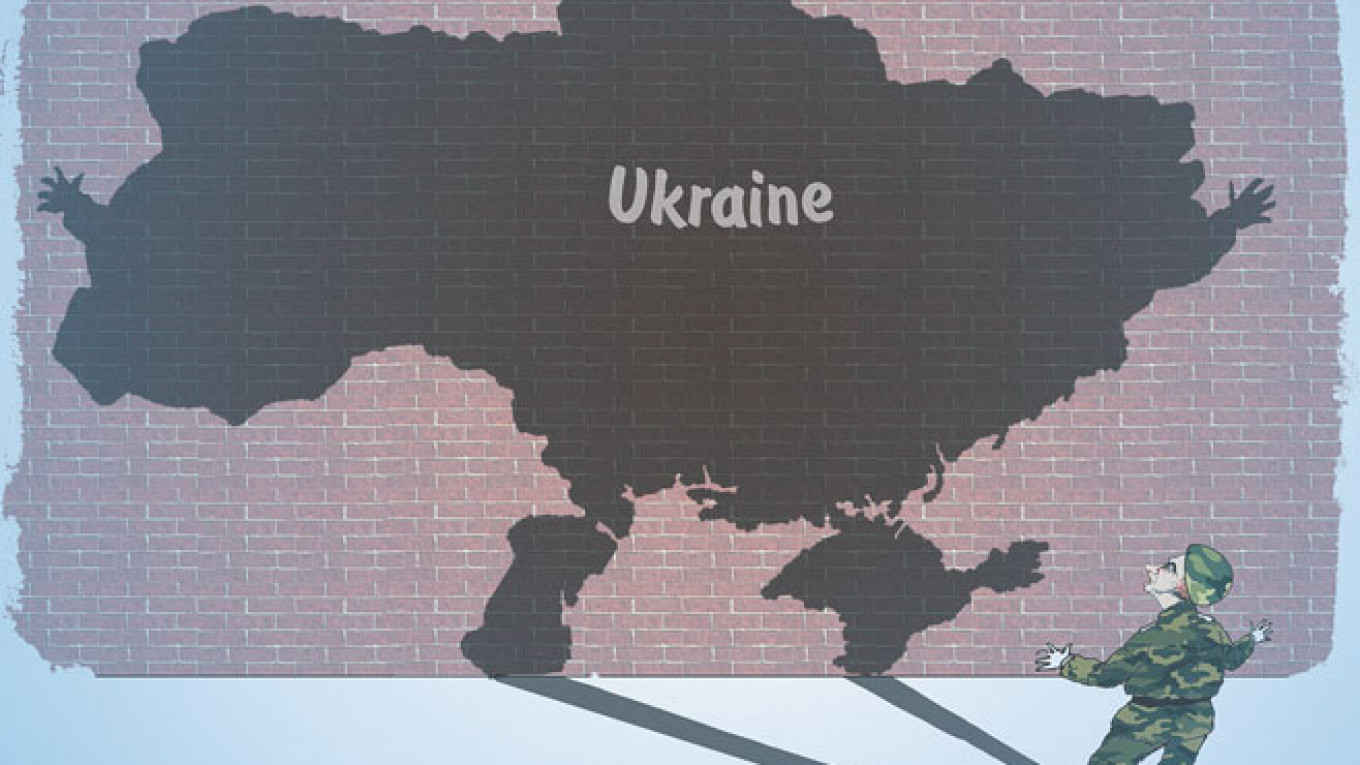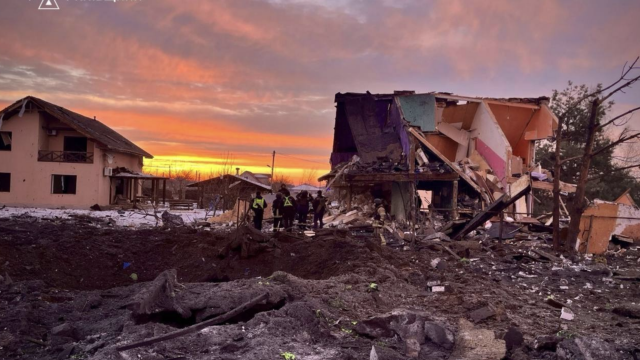The current crisis is not about Crimea. It is about the rights of Russian-speakers throughout Ukraine whom the Kremlin wants to protect from violence and discrimination. Russia does not want a military intervention in Crimea and does not want to take Crimea from Ukraine.
There is a political solution to this crisis. First, create a coalition government in Kiev composed of all parties, including those from the east and south of the country. The current government is dominated by anti-Russian extremists from western Ukraine.
If the extremists who seized power in Kiev do not accept Russia's democratic proposals, Russia will likely be forced to revert to military means to solve the crisis in Ukraine.
Second, Ukraine needs to draft a democratic constitution that has guarantees for Ukraine's Russian-speaking population that would grant official status to the Russian language and establish the principle of federalism.
Third, presidential and parliamentary elections must be held soon. Independent election observers must play an active role in ensuring that the elections are free and fair. There is a real danger that they will be manipulated by the neo-Nazi militants who de facto seized power in a coup.
If these democratic and peaceful solutions to the crisis in Ukraine are rejected by the opposition forces that have seized power in Kiev, I am afraid that Russia will have no other choice but to revert to military means. If the junta leaders want to avoid war, they need to adopt Moscow's peaceful and democratic proposals and adhere to them.
Those currently in power in Kiev are carrying out a political strategy that is not so much pro-European as it is anti-Russian, as evidenced by the surprisingly heavy-handed tactics the U.S. and European Union have employed in Ukraine. In the end, a minority executed a violent coup that removed the democratically elected and legitimate president of Ukraine.
The Kremlin believes that the current Ukrainian leadership will manipulate the elections planned for May 25 to install a single leader or coalition government functioning much as former Georgian President Mikheil Saakashvili did in Tbilisi. A "Ukrainian Saakashvili" will unleash an even more repressive campaign of intimidation against Russian-speakers, one that over several years would stoke anti-Russia hysteria among the general population.
After that, Kiev may evict Russia's Black Sea Fleet from Sevastopol and purge Crimea of any Russian influence. Ukraine could easily become a radicalized, anti-Russian state, at which point Kiev will fabricate a pretext to justify taking subversive action against Moscow. This looks especially likely considering that ruling coalition members from the neo-fascist Svoboda and Right Sector parties have already made territorial claims against Russia. They could easily send their army of activists to Russia to join local separatists and foment rebellion in the North Caucasus and other unstable regions in Russia. In addition, Russia's opposition movement will surely want to use the successful experience and technology of the Euromaidan protests and, with the help and financial support of the West, try to carry out their own revolution in Moscow. The goal: to remove President Vladimir Putin from power and install a puppet leadership that will sell Russia's strategic interests out to the West in the same way former President Boris Yeltsin did in the 1990s.
The official census puts the Russian minority in Ukraine at 16 percent of the total population, although that number was falsified. The actual number is closer to 25 percent. Surveys indicate that 45 percent of the country's population speak Russian at home, 45 percent speak Ukrainian and 10 percent speak both languages. In the most recent Gallup survey, when asked in which language they would like to be polled, 83 percent of respondents chose Russian. Taking into account the rural population in western and central Ukraine, about 75 percent of the people, probably speak Russian. Of that 75 percent, only about 10 percent are those in Kiev and a few other major cities who supported the protests. This means that only 35 percent of the population are attempting to impose its will on the remaining 65 percent, using a violent coup to achieve their goals.
Putin made the right decision: He did not to wait for that attack and took preventative measures. Many in the West say the Kremlin's reactions were paranoiac, but Germany's Jews also thought the same of leaving the country in 1934. Most of them chose to believe they were safe and remained in Germany even after Hitler came to power. The infamous Kristallnacht took place five years later, one of the first early chapters in the "Final Solution." Similarly, just four years remain until Russia's presidential election in 2018, and there is a strong risk that subversive forces within and outside Russia will try to overthrow Putin, in part using their new foothold in Ukraine.
Will there be war in Ukraine? I am afraid so. After all, the extremists who seized power in Kiev want to see a bloodbath. Only fear for their own lives might stop them from inciting such a conflict. Russia is prepared to move its forces into southern and eastern Ukraine if repressive measures are used against the Russian-speaking population or if a military intervention occurs. Russia will not annex Crimea. It has enough territory already. At the same time, however, it will also not stand by passively while Russophobic and neo-Nazi gangs hold the people of Crimea, Kharkiv and Donetsk at their mercy.
Sergei Markov is director of the Institute of Political Studies.
A Message from The Moscow Times:
Dear readers,
We are facing unprecedented challenges. Russia's Prosecutor General's Office has designated The Moscow Times as an "undesirable" organization, criminalizing our work and putting our staff at risk of prosecution. This follows our earlier unjust labeling as a "foreign agent."
These actions are direct attempts to silence independent journalism in Russia. The authorities claim our work "discredits the decisions of the Russian leadership." We see things differently: we strive to provide accurate, unbiased reporting on Russia.
We, the journalists of The Moscow Times, refuse to be silenced. But to continue our work, we need your help.
Your support, no matter how small, makes a world of difference. If you can, please support us monthly starting from just $2. It's quick to set up, and every contribution makes a significant impact.
By supporting The Moscow Times, you're defending open, independent journalism in the face of repression. Thank you for standing with us.
Remind me later.






